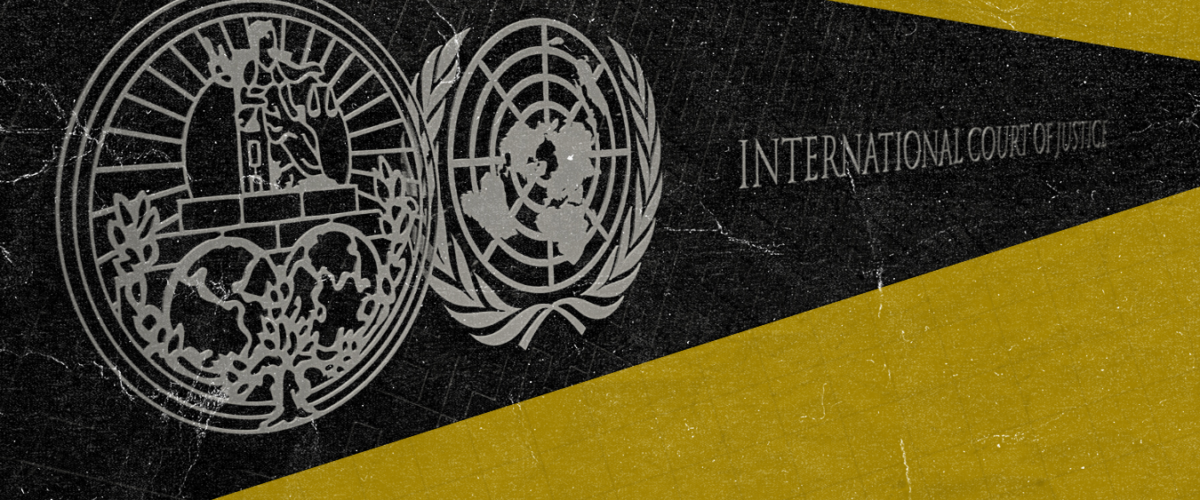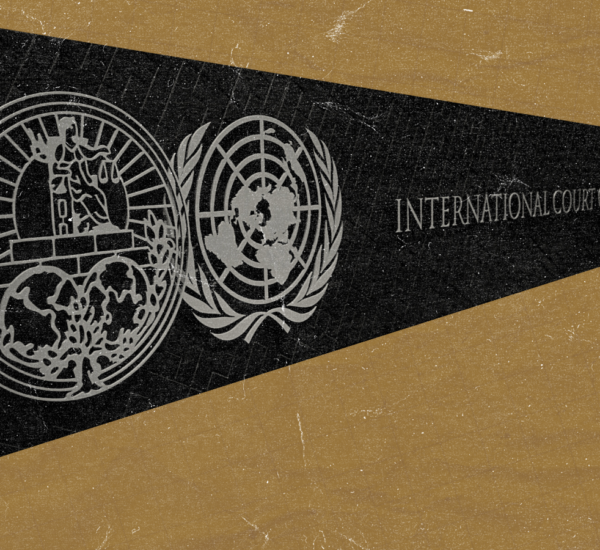Below is a summary of arguments put forth by Israel against South Africa’s Request for indication of provisional measures in the Application of the Convention on the Prevention and Punishment of the Crime of Genocide in the Gaza Strip (South Africa v. Israel)
Introduction
On 29th December 2023, South Africa filed an application instituting proceedings against Israel before the International Court of Justice [“ICJ”], concerning alleged violations by Israel of its obligations under the Convention on the Prevention and Punishment of the Crime of Genocide [“Genocide Convention”] in relation to Palestinians in the Gaza strip.
South Africa claims that Israel has breached its obligations under the Genocide Convention by committing genocidal acts with specific intent against Palestinians in Gaza; by failing to prevent genocide against Palestinians in Gaza; and by failing to prosecute public incitement to genocide. As immediate relief, South Africa has requested the ICJ to indicate certain provisional measures to ensure Israel’s compliance with its obligations under the Genocide Convention to not engage in genocide and to prevent and punish genocide. South Africa has also requested that the ICJ direct Israel to preserve relevant evidence so that its claim of genocide can be adjudicated fairly. South Africa’s application instituting proceedings before the ICJ is available here. South Africa presented its preliminary submissions before the ICJ on 11th January 2024, whereas, Israel presented its submissions on 12th January 2024. A summary of Israel’s submissions is as follows:
Israel’s Submissions – An Overview
Israel made five main arguments. First, the ICJ lacks prima facie jurisdiction, as South Africa did not show any dispute between itself and Israel at the time the application was submitted. It further claimed that South Africa misled the Court into believing that a dispute existed. Second, South Africa did not meet the condition of having plausible rights to be protected in the current circumstances. Third, the events under consideration are contextualized within a war initiated by Hamas, operating under the legal framework of international humanitarian law; that they do not fall within the scope of the Genocide Convention. Fourth, the standard of irreparable harm and urgency is deemed unmet. It is argued that Israel is actively taking steps in collaboration with others to address the humanitarian situation in Gaza. Fifth, the provisional measures sought by the applicant are unwarranted and prejudicial.
Opening Remarks
Co-agent for Israel, Mr. Tal Becker opened Israel’s arguments. Citing the Holocaust’s impact on its history and ratifying the Convention without reservation, Mr. Becker reaffirmed Israel’s commitment to the Genocide Convention. He asserted that the allegation of genocide against Israel, as invoked by South Africa, is a distortion of the reality of the ongoing conflict with Hamas. He asserted Israel’s inherent right to self-defence, and the need to protect its citizens against the acts committed by Hamas on October 7th 2023. Mr. Becker contended that South Africa’s portrayal omits crucial details, such as Hamas’ use of civilian infrastructure for military purposes and the organization’s disregard for ceasefire and international law. He asserted that Israel is fighting against Hamas, not the Palestinian people, and argued that the application by South Africa and its request to indicate a provisional measure should be dismissed.
Oral Arguments
Prima Facie Jurisdiction and the Preservation of the Rights of the Parties
Mr. Malcolm Shaw denied South Africa’s claim that the acts of genocide must be considered in the broader context of Israel’s conduct towards Palestinians for 75 years and asserted that the correct context of the conflict is Hamas’ October 7th attack. Mr. Shaw reasserted Israel’s acts of self-defence and argued that the threat or use of force cannot in itself constitute an act of genocide within the meaning of Article II of the Genocide Convention. He argued that according to Article IX of the Genocide Convention, the ICJ’s jurisdiction is conditional on the existence of a dispute related to the interpretation, application, or fulfilment of the Convention.
Mr. Shaw criticised South Africa’s claim of genocide against Israel, pointing out a lack of evidence for a genuine dispute and insufficient diplomatic exchanges between the parties. He noted the challenges in determining whether a prima facie case exists given the standard of proof is not negligible at the provisional measures stage. He asserted that intent is not entirely dismissed at the provisional measures stage, and the acts complained of may only be considered within the Genocide Convention if specific intent is present. He argued that South Africa misinterpreted statements from Israeli politicians asserting the absence of genocidal intent and failed to demonstrate prima facie jurisdiction of the ICJ. Mr. Shaw argued that the ICJ’s power to grant provisional measures is aimed at preserving the respective rights claimed by the parties during the case and Israel’s right and obligation to defend itself. The Court does not need to definitively establish the existence of the claimed rights but must find them plausible.
Facts on the Ground
Challenging the accusations of genocide, Ms. Galit Raguan argued that Hamas, the governing authority in Gaza, employs tactics that intentionally place civilians at risk. Examples include using civilian structures for military purposes, launching rockets from civilian areas, and hiding weapons in hospitals. She contended that civilian casualties often result from Hamas’ actions rather than Israeli attacks.
Asserting that Israel’s actions demonstrate a commitment to minimizing harm to civilians in a complex and challenging conflict, Ms. Raguan highlighted advance warnings of attacks, coordination with international organizations, and dissemination of information for civilians to evacuate. She disputed the claim of these efforts being genocidal, rather noting that they align with international humanitarian law. She also noted the role of Israel’s military unit, COGAT, in coordinating with international organizations, facilitating aid entry, and reinforcing medical services. Ms. Raguan contended that allegations of genocide are untenable in the face of Israel’s humanitarian efforts.
Lack of Risk of Irreparable Prejudice and Urgency
Mr. Omri Sender argued that the conditions of irreparable harm and urgency, necessary for indicating provisional measures, are not met in the current situation. He challenged the applicant’s assertion that Israel’s actions pose a risk of irreparable harm, emphasising the decreasing scope and intensity of hostilities. He highlighted Israel’s ongoing humanitarian efforts, including the provision of food, water, medical supplies, and other aid to Gaza, aiming to address the needs of Palestinian civilians. Mr. Sender pointed out that Israel’s actions align with the legal test of concrete measures recognizing and ensuring the rights of Palestinian civilians.
Mr. Sender presented two key factors to contest the urgency claimed by the applicant. First, he highlighted a diminishing intensity of hostilities, citing statements from Israel’s Defence Minister and the military spokesperson about transitioning to a less intense phase of the conflict. Second, he drew attention to UN Security Council Resolution 2720 of 22 December 2023 addressing the humanitarian situation in Gaza, emphasising that it is actively being implemented, with a senior coordinator appointed.
Unwarranted and Prejudicial Provisional Measures Requested by South Africa
Addressing the first two provisional measures sought by South Africa, which demand the immediate suspension of Israel’s military operations in Gaza, Mr. Christopher Staker asserts that South Africa’s requests go beyond what is necessary to protect rights on an interim basis and lack a link with the rights sought to be protected. Mr. Staker iterated principles which are applied when requesting provisional measures – avoiding irreparable prejudice to the respondent, ensuring proportionality, and avoiding any impression of bias. Additionally, he argued that Hamas is considered to be a terrorist organisation, noted its recent attacks and the international recognition of Israel’s right to self-defence, and Israel’s commitment to international humanitarian law and efforts to alleviate the humanitarian situation.
Mr. Staker argued that the third measure’s wording is not confined to current military operations in Gaza and is expressed to apply in relation to the Palestinian people generally. He asserts that the measures seek a special mandate to act internationally on Palestinian issues. He also objected to the fourth measure, claiming it seeks an implied ruling on the merits and uses problematic language. The fifth measure was criticised for lack of necessity and potential misinterpretation. Whereas, the sixth measure was contested for referencing irregular armed units without justification. The seventh measure is questioned for asserting concerns about evidence destruction without evidence. The eighth and ninth measures are deemed unnecessary, lacking justification. Mr. Staker concluded by stating that these specific measures requested by South Africa are inappropriate.
Conclusion
Mr. Gilad Noam summarised and concluded the arguments. He asserted that the applicant portrays Israel falsely as a lawless state and challenges this portrayal, emphasising Israel’s commitment to international law. He argued that Israel has a robust legal system and mechanisms for accountability. He also addressed the broader implications of the case, warning that entertaining the applicant’s request could weaken the commitment to preventing and punishing genocide. He concluded by urging the ICJ to reject the request for provisional measures and remove the case from its list.





